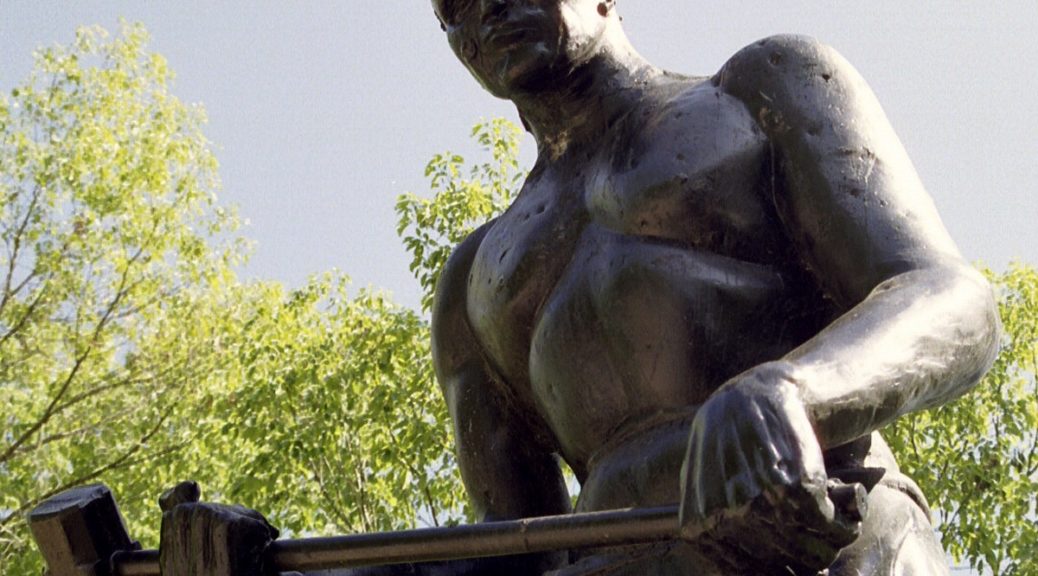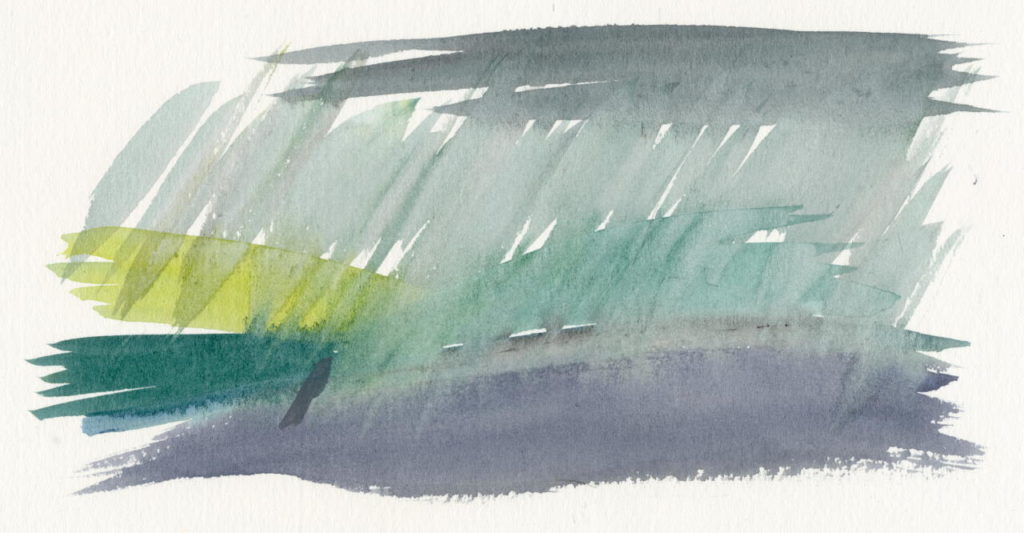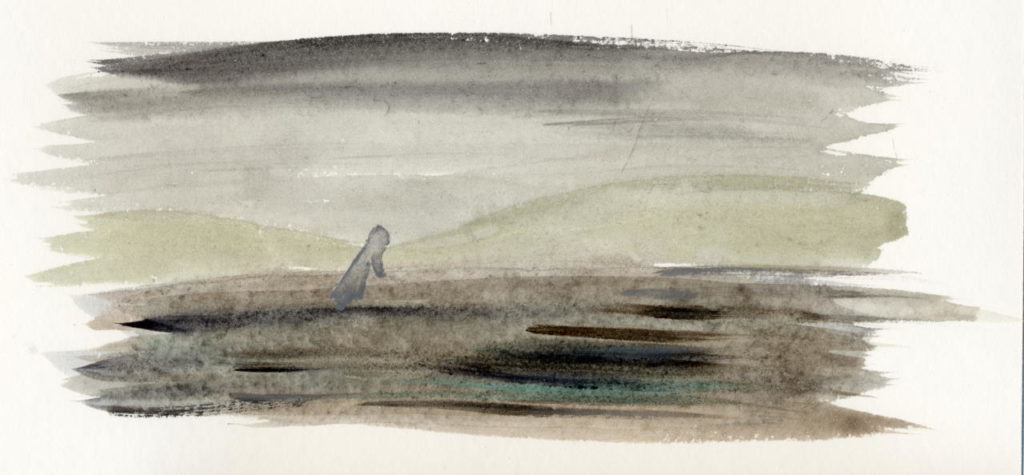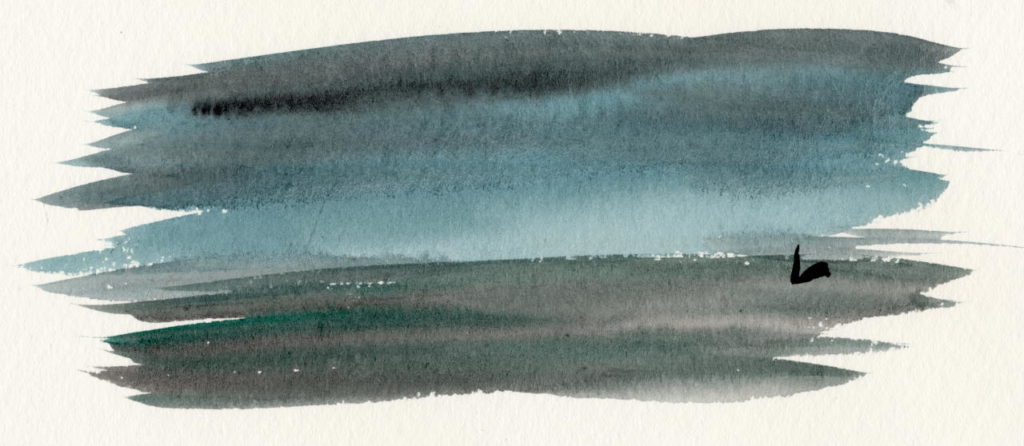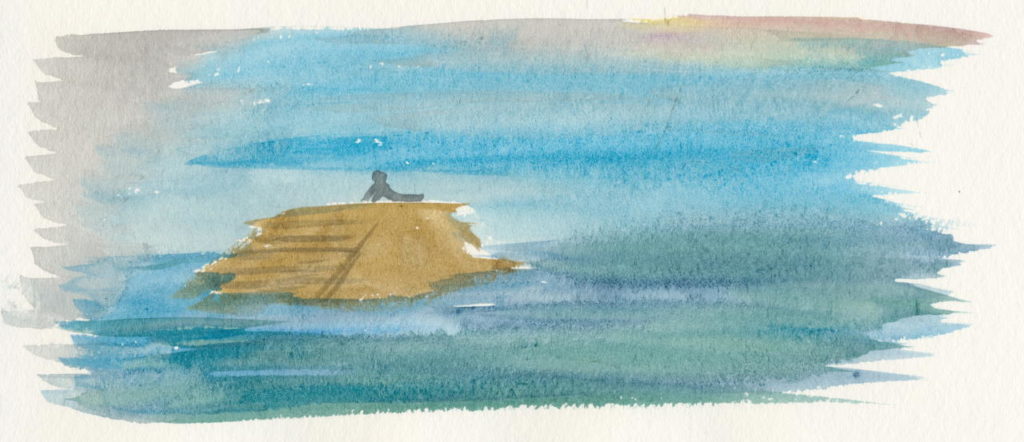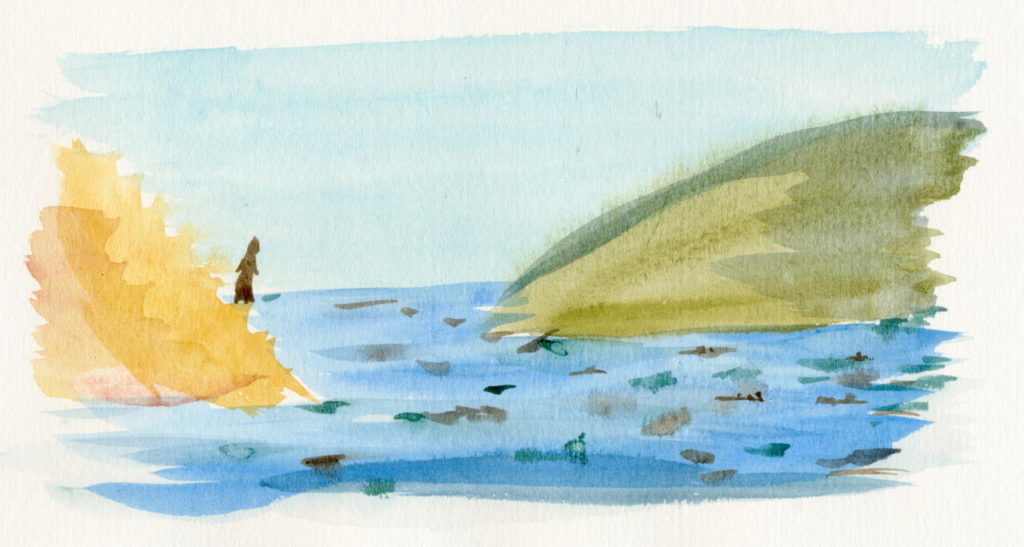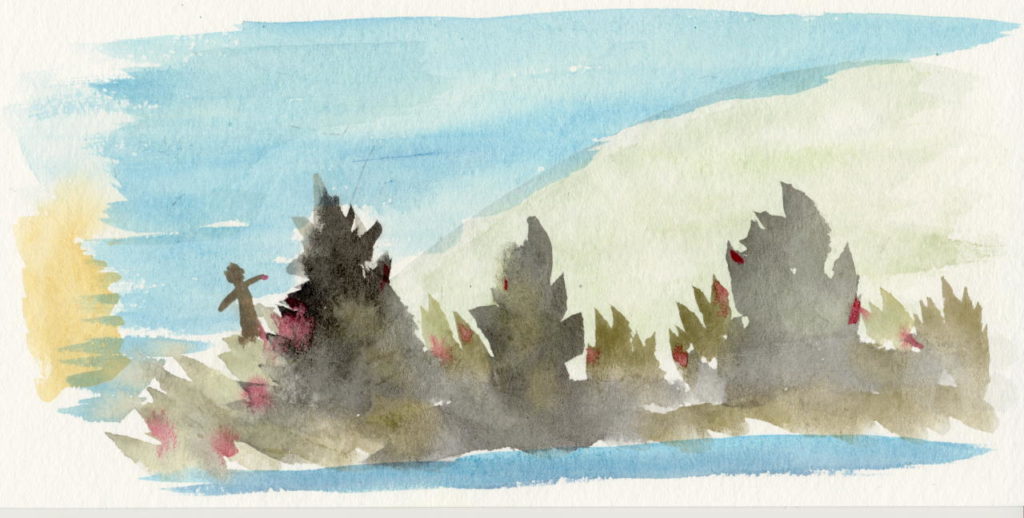This is a series of thoughts about Season One of the TV series undone. Rating: TV-MA. Content warnings: Language, car accidents, suicide. It assumes you have already watched the series, and contains spoilers for Season One.
Alma knows her life is a mess, and is hoping for a quick fix. They never happen.
She ends up learning to connect to the world.
This is the true journey, not the magical poof! that solves all problems and erases a painful past. In the final scene, she hopes to see her father emerge, but — I believe — instead sees a glorious sunrise over the ancient temple. Her father will not appear, but now she is is on a new journey toward wholeness.
Jacob, her father — at least the one in her head — has a different journey. At first, as in life, he’s very driven, single-minded, and driven to accomplish his objective. He feels fully justified in lying and unethical behavior for the greater good. He has no doubt that he is (and was) the “good guy.”
In one moment, he realizes that he was not the hero he thought he was. His response is despair; to give up.
Despite all of his research — and even some practice of — spiritual connection, he remains a typical Western detached thinker. Untouched and unmoved, he sees all as a means to an end.
Since he is physically dead, Jacob’s journey becomes Alma’s. She, too, begins to see that she was not “the good guy.” But she now has an opportunity to grow and move toward wholeness.
In her mind, her father’s trajectory has changed; he has now made the choice to stay rather than leave. She is beginning to make the same choice.
She is at peace with the end of her father’s journey, because it means closure — like two streams merging to create a third, more rich and robust.
She had been living under the burden of her father’s absence (betrayal? neglect?) and it was a convenient excuse for her failing life.
She has had these two journeys going on in her head for 17 years, both denying and trying to integrate them. It took the crisis of the car accident to show her that this journey was not healthy or sustainable — if she didn’t deal with these two broken streams, she would continue in this pattern forever.
Was all this “just” schizophrenia? Probably. But as we watch Alma we see how the inner landscape is a real part of us. Does it happen in her head? Yes, but so does everything, for all of us. Our somatic, subjective interpretation of the past and present is reality.
The presence of mental illness doesn’t mean we can just discard and disregard everything we experience. Our lived experience is our journey. Like a human trying to ride an elephant, we don’t have control so much as influence over the journey.
Jacob trains Alma for his own goals, and Alma learns. But Alma integrates the training in a way that Jacob never could. She uses it intuitively to train the elephant, to guide her inner self.
So while she is outwardly still hoping for a magical fix, inwardly she knows that it’s the long journey that counts. She ends at peace with the messiness to come.
